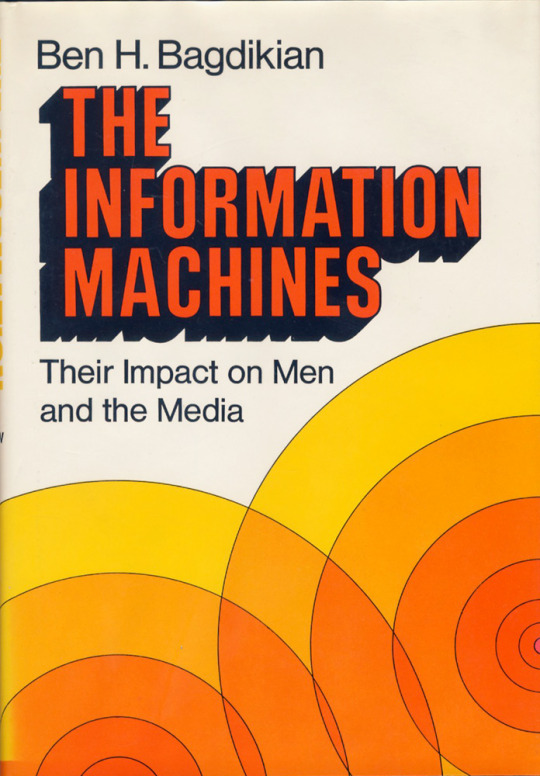#Ben H. Bagdikian
Text

Ben H. Bagdikian, The Information Machines (Harper & Row, 1971).
221 notes
·
View notes
Link
When Juliette Gordon Low founded the Girl Scouts of the United States of America in 1912, her vision was one of international understanding and cooperation. It’s unlikely she anticipated backlash from far-right extremists. But 42 years later, in March 1954, an article in an “ultraconservative magazine” criticized the organization’s internationalism, and sparked a wave of isolationist sentiment in response to its founding principles. People sent letters to the Girl Scouts’ headquarters; organizations such as the Illinois Legionnaires spoke out condemning the group. The debate even came up in Congress. At headquarters, this response caused a panic: Over sixty changes were made to the Girl Scout Handbook as a result of the outside pressure.
In the May 1955 Atlantic, Ben H. Bagdikian published an analysis of these modifications. Bagdikian discerned that the changes had more to do “with the climate of the nation” than the ideals of the organization itself. Juxtaposing language from the 1947 and 1953 versions of the Handbook and the “emergency pamphlet” sent to scout leaders in 1954, he wrote of a “growing nervousness about international friendship”:
Page 86. Change the sentence beginning with Line 2 to read: “Service is your way of making a contribution to your community.” A few months before, it had read: “Service is your way of making this a better world in which to live.”
Among other things, the activists had pushed for the Girl Scouts to limit references to the United Nations, eliminate references to international professionals who had once been presented as role models, and remove language that emphasized Low’s original concept of engendering “One World.”
Bagdikian concluded that because they were prompted by outside actors rather than members themselves, the changes littered throughout the Handbookultimately did not affect the core values—“idealism, good citizenship, and international friendship”—or practices of the Girl Scouts. First and foremost, they were meant to appease extremists who felt internationalist language was “un-American” and had “dangerous political connotations.”
0 notes